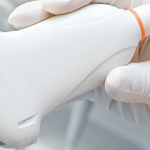What if she died? Wasn’t she DNR?

Dr. Kremer
With some effort, I was able to harness my better angels and treat our interaction as a teaching moment.
I explained that a DNR status is meant to apply to resuscitation in the setting of the natural course of a terminal illness. It was not meant as a directive to withhold compassionate, appropriate medical attention in other situations that might arise in the course of a patient’s pre-terminal life. What if BL had fallen in the bathroom, struck her head and was bleeding? Would we withhold first aid and appropriate medical attention? We went through other scenarios in which a patient with a terminal illness still deserved compassionate attention for relief of symptoms, even while inhabiting DNR status.
I was struck by the confusion on the part of a good house officer about how to proceed in the situation described. It became apparent to me that her belief was that DNR meant the right thing to do was to not provide medical attention and succor. And this was to be the case even if the acute problem was reversible, and/or only tangentially related to the underlying condition for which the DNR designation had been agreed to by the patient and her family.
Expanded Learning Opportunity
After BL’s experience, we arranged for a house staff conference. I wanted to discuss whether it is appropriate to offer care for acute and reversible events in a patient with a DNR order. There was a good deal of shifting in chairs, accompanied by many troubled expressions on the faces of the medical residents in attendance. Some residents were clearly flummoxed by the idea of helping a DNR patient survive—even if an acute medical challenge was readily reversible. It was just so much easier to equate DNR with “stop doing everything.”
The house staff ’s non-verbal communications appeared to indicate, “Why do you need to make our lives more complex? I thought I knew what to do with these patients!”
Are we respecting the rules by rendering care in these situations?
Patient’s Perspective
BL passed away at home several months after this hospital event. Her nutritional status had deteriorated further, and toward the end she refused both feedings and parenteral nutrition. I connected with the family at the time of their loss. They once again thanked me for saving a beloved wife and mother from what would have been an agonizingly frightful and unanticipated final moments of life because of an aspiration at lunch. They again related how grateful BL was that she did not pass from this world in that manner.

